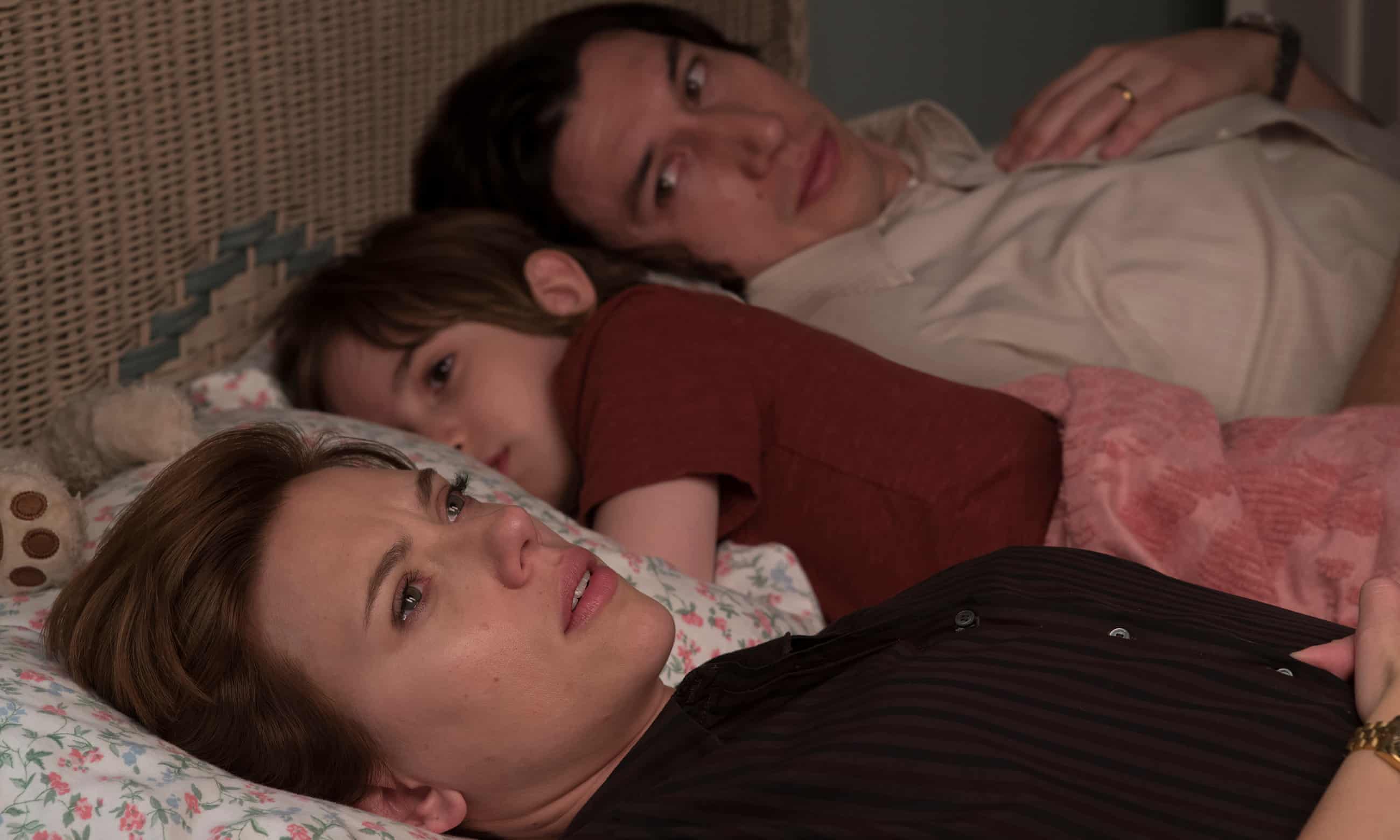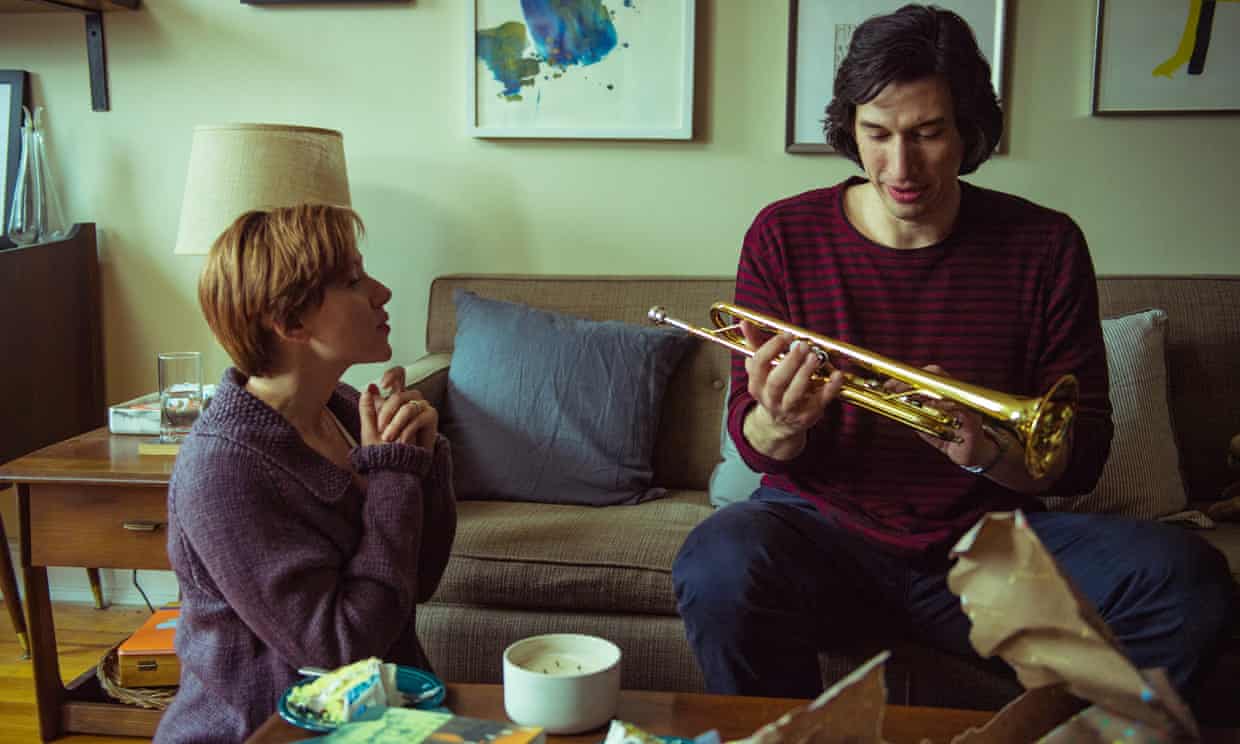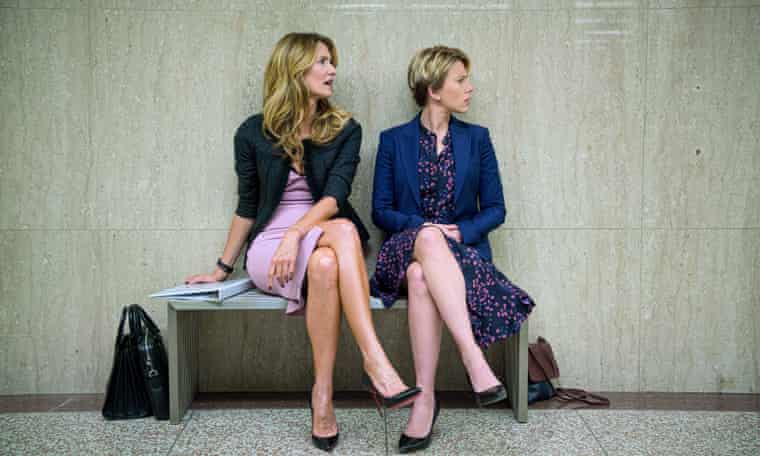
Now you've seen it
Marriage Story: whose fault is it anyway? Discuss the film with spoilers
Noah Baumbach’s divorce comedy has hit Netflix, polarising viewers into those who back Adam Driver’s Charlie and those who support Scarlett Johansson’s Nicole
by Catherine ShoardMuch of the debate concerning Noah Baumbach’s latest film has not concerned how good it is: this divorce drama has unified critics and audiences like few others this season. Its debut on the small screen has not come with the disappointment, even anger, that accompanied the Netflix drop of Martin Scorsese’s The Irishman – though that was a film whose length and visuals make it much less suited to the telly.
Rather, the debate has largely been tribal: do you side with Nicole or with Charlie? Or do you take a higher moral ground and contend that such reductiveness is antithetical to the spirit of art and demeans all those who indulge in it?
Here, we have our wedding cake and eat it.
Why it’s Nicole’s fault
She’s the one who moves to Los Angeles. She doesn’t have to – they are a New York family, despite her having been raised on the west coast. The pilot looks ropey, and surely there are other work opportunities she could have enjoyed in New York, had she a little more vision (and confidence).
Secondly: she hires Nora, and believes she’ll play fair. That’s a major error of judgment. Plus, whether by design or accident, she blocks Charlie using most other affordable lawyers by consulting them first. Apparently, her sister set up the meetings, but, given the number of them, it’s hard to believe that she saw them all accidentally.
The incidentals seem mean, too: not offering Charlie a bed for the night on the day he’s served with divorce papers. The last-minute volte face about Halloween. Right from that initial mediator meeting, Nicole is by far the more spiky and volatile – the person who makes things difficult.
Why it’s Charlie’s fault
He cheated. He was wrapped up in his work to the detriment of both Nicole’s career and her sense of self. He didn’t temporarily move to LA when they were married – though did agree to a hiatus in Europe.
Nicole’s redeeming features

She’s honest, while Charlie does fib a little. She does more of the childcare. She has to contend with her own family, as well as her ex – though this is also a luxury that Charlie (who’s estranged from his own parents) can’t enjoy. She’s essentially kind and loving; suckered by Nora when she’s at her most vulnerable and the lawyer is at her most rapacious. Late on, she concedes she did the wrong thing in proceeding with lawyers, though the way that confrontation plays out goes some way to vindicating her decision.
Plus, she’s the victim of something bigger than just this story. The first scene earning rounds of applause in the cinema is Nicole’s blindside against the injustice of the pressures put on mothers but not on fathers. It’s calculated, articulate, cathartic – and valid.
Charlie’s redeeming features
How long have you got? He’s a self-made genius. A wonderful boss; if anything too diligent and kind. A fantastic father: creative, loving, devoted. He moves 3,000 miles, away from everything else he loves, to be with his son. He’s an adorable son- and brother-in-law.
All his flaws are forgivable and his errors of judgment relatable – who hasn’t struggled with a rental-car child seat? Sometimes they’re even aspirational: sure, he cheated, but only once. And, as he says, he stayed faithful in his 20s, when he had ample opportunity and appetite to stray.
One of the funniest scenes in the film comes when Charlie and Henry spend the evening under the mirthless gaze of Martha Kelly’s mediator – and he accidentally slices his arm open. Charlie protests its painlessness through the agony to brilliant comic effect. But have no doubt: this man bleeds.
Charlie is the one who says that he hopes every day that his ex is dead, that she gets ill and then hit by a car and then dies. He’s also the one who is embraced and comforted the very next second. Because, even if he does mean it, he’s been hurt.
Why it’s your fault for caring
Few break-ups are without blame on both sides, and no films are interesting that exist in such polarities. The trend for gunning for one of the couple is a nasty, social-media-fuelled impulse that lowers the audience and insults the art.
Plus, the split is a red herring – right? Baumbach himself has protested that it’s not really about divorce at all. But does that ring false? Could it be a way of deflecting attention from the immensely personal private inspiration for the film?
The lawyers

Two major career renaissances (for Alan Alda and Ray Liotta) have been de facto launched by Marriage Story, while Laura Dern’s bubbling comeback has gone red hot. Dern has won widespread praise and a small coterie of detractors for her rapacious turn as Nora, the cutthroat broker hired by Nicole. It’s a performance of rare charisma and lethal efficiency – which makes especially compelling contrast with Dern’s role as Marmie in Little Women, directed by Baumbach’s other half, Greta Gerwig.
Did her showstopping turn detract from the human drama for you? How about Alda and Liotta: was the first too cuddly and the latter too bombastic? Or were these turns that reminded you just what gems these actors were to start with?
Did the film demonise divorce lawyers? Or are they just doing their – grisly, necessary – job?
The Sondheim
It’s easy to forget there are two full performances of numbers from Company in the film. Nicole belts out a larky You Could Drive a Person Crazy with her mother and sister at a family do, while Driver’s internet-breaking version of Being Alive is easily the musical moment of the cinematic year so far. (We’ve yet to experience Cats.) Did his performance floor you? Or did you find it too protracted and self-advertising?
First-world problems
The stakes in the film are, in their specificity, extremely high, and taken in relief to most lives, quite low. The main issue is whether Charlie will need to move to Los Angeles to keep up regular contact with his son. When he does so, it’s pretty seamless – albeit a bit lonely – and he finds fulfilling work relatively fast. It’s never an option that the pair will reconcile – Baumbach sets the action almost entirely post-split, and the sadness of the divorce process comes not primarily from the love affair ending but the attendant stresses and strains and the ways in which the process encourages nastiness. Their son seems relatively well adjusted; we know he will be fine. Money isn’t really an issue. Should we still care? And if we do, why?